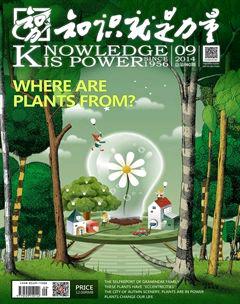The Origin and Evolution of Plants: Power to Shape The Nature
Fang Jingyun
Professor of Peking University
Director at the institute of botany, Chinese Academy of Science
Academician of Chinese Academy of Science
Because of the prosperous and diverse biosphere, the Earth becomes a pearl in the vast universe. But at the beginning of the Earths formation, the conditions were harsh, and the earliest primitive lives were only some simple anaerobic oxidation heterotrophic organisms. As the alimentation mode changed, some of the primitive lives evolved into primitive algae who live a autotrophic life by photosynthesis. The emergence of these primitive algae fundamentally promoted the development and evolution of the whole earth and the living nature. The oxygen released by the original algal photosynthesis increase the atmospheric oxygen concentration, gradually formed the ozone layer which could block the direct ultraviolet radiation, thus deeply changed the whole ecological environment of the Earth. The original life in the ocean finally had the possibility of the development to the land, which laid the environmental foundation for the more complex evolution of the living nature. On the other hand, the orignal algae transformed solar energy into organic matter through photosynthesis, which provided energy to sustain life activities for the eukaryotic unicell heterotrophic organisms who fed on ready-made organic matters. Since then, the primitive organisms who got the appropriate environmental and energy began the long evolution, many complicated plants, animals, fungus and other higher organisms were born out, forming the beautiful nature in today.
Starting from the original green algae, the plants gradually developed from water to land, and evolved a series of features to adapt to the terrestrial environment. In terms of vegetative organs, the development of organs such as roots, stems and leaves made plants live normal life on land; In terms of reproductive organs, the emergence of seed plants—especially the angiosperms—ensureed the stability and efficiency of breeding. From lower plant to higher plant, from the mosses, ferns, gymnosperms to angiosperms, plants gained a firm foothold step on land by step. By providing oxygen, food and shelters, plants promoted the development and evolution of the animal kingdom, thus shaping the whole of the earths terrestrial ecosystems.
While plants cannot migrate like animals, they can realize the spread of populations and species relying on their propagule, the capacity of the seeds to spread is particularly strong. In addition to the dandelion and coconut whose seeds can be spreaded by air and water, many plants seeds will get the animals lift. Various plants start to spread from the origin center like this patiently, and settle down in a comfortable environment. The environmental differences caused by geographical distribution make plants to develop the corresponding adaptive characteristics, so the genetically close speicies of the same ancestors may also separate ways during the evolution. For example, one branch of gramineae develops in the forest environment to form bamboo, while the other branch develops in the open environment to form most of the grasses. The Earth environment in different regions varies widely, including the huge zonal changes between the north or south poles and the equator, the significant elevation differences beween the Himalayas and the Marianas trench, as well as the long geological evolution history of 4.6 billion years. Such ever-changing living environment ultimately form the rich and colorful plants world on the earth today.
As an important part of ecological system, human are deeply affecting the spread and evolutionary process of plants through domestication and cultivation of wild plants. In the process of cultivating grain, fruit, vegetables and omamental plants, human also create a lot of new species. This is also the unique contribution to the nature. However, due to the development of modern industry, the human also constitutes great threat to the diversity of global plants, the disappearance of rainforests, degradation of grassland are wake-up call to us, the most important ecological basis on the earth can no longer bear the endless asking of human. It has become urgent to give back our mother nature.

